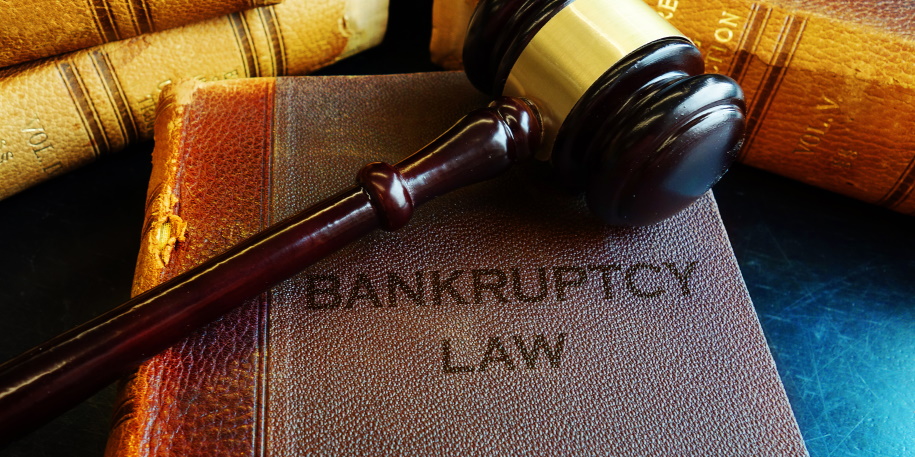Choose the Right Bankruptcy Filing with the Help of The Wink Law Firm, Denver’s Premier Debt Settlement Law Firm
Small businesses are the lifeblood of Colorado communities. They bring local charm, creativity, expertise, and employment to Colorado residents. Naturally, small businesses face many challenges depending on changes in the economy, competition, demand for their products and services, and the high costs involved in maintaining a business. Because of this, many businesses may find themselves struggling to settle debts. If your small business’s debt outweighs its assets, it may be time to consider filing for bankruptcy.
Corporations or LLCs can file for bankruptcy, but a corporate bankruptcy will not erase your personal liability for guaranteed contracts, business leases, or other debts. Due to this reason, many small business owners choose to instead dissolve the corporation and file for personal bankruptcy, which allows them to forgo paying guaranteed business debt. This can be done in Chapter 7 or Chapter 13 bankruptcy.
Corporations may also restructure their business instead of filing personal bankruptcy. This is known as Chapter 11 bankruptcy.
When making this serious of a decision, it’s crucial that you consult small business bankruptcy lawyers like The Wink Law Firm. We’re a husband-and-wife bankruptcy law firm in Denver, Colorado that serves several Colorado cities, including most of the front range and all of the Denver metro area. We’ll provide a free consultation to review your situation and make sure bankruptcy is the most cost-effective option for you and your business.
Chapter 7 Bankruptcy
If your corporation or LLC files Chapter 7 bankruptcy, its assets will be liquidated. This form of bankruptcy can limit the stress and potential liability for the business owner, especially if creditors are fighting over the corporate assets. Chapter 7 bankruptcy also minimizes the likelihood of lawsuits from creditors against the corporation’s officers or directors. However, your corporation or LLC’s bankruptcy will not remove your personal liability for its debt. Therefore, you may wish to consider dissolving the LLC or corporation and filing personal bankruptcy. In addition to removing your personal liability for the LLC or corporation’s debt, this may also enable you to protect the business assets and continue operating the business as a sole proprietor.
Chapter 11 Bankruptcy
Chapter 11 bankruptcy restructures the corporate debt. Corporations negotiate with the creditors to settle the debt. However, Chapter 11 bankruptcy brings with it many challenges, as there are limits to how corporations can force a restructuring on the creditors. Chapter 11 bankruptcy can also lead to high legal fees, often in the tens of thousands of dollars. For these reasons, Chapter 11 bankruptcy is usually not a practical option for small businesses.
Chapter 13 Bankruptcy
Chapter 13 bankruptcy is only available as a form of personal bankruptcy. Whereas Chapter 7 bankruptcy erases most personal unsecured debts, Chapter 13 bankruptcy includes a three- to five-year payment plan that covers a portion of your debt, while discharging the remainder. This is only available for sole proprietorships. While corporations or LLCs may not file for Chapter 13 bankruptcy, you may be able to file a personal Chapter 13 bankruptcy while running your business as a sole proprietor.
Which Bankruptcy Is Right for You?
It can be hard to determine the right bankruptcy option for you and your small business. It’s critical that you consult a debt settlement attorney. Mike Wink has more than 10 years experience helping small businesses get debt relief. He received his J.D. from the University of Colorado at Boulder and are members of the National Association of Consumer Bankruptcy Attorneys.
Personal Liability
Many business debts bring with them a personal liability. You might have personally guaranteed some of your business debts, such as for leasing an office or commercial space or for your corporate credit card. Because of this, creditors can go after you personally to collect on the debts your business has accrued.
Filing for bankruptcy for your small business does not remove your personal liability for guaranteed business debts. That’s why a personal bankruptcy might be a better option for your small business.
Closing Your Small Business
If you’ve decided to close the business, it’s best to do this before you file for bankruptcy. Be mindful of any personal liability for business debts that bankruptcy will not erase, including sales and payroll taxes. Any remaining business assets you have can be used toward payment of any of these non-dischargeable debts. The Wink Law Firm can help with the dissolution of your small business to reduce your outstanding financial liability.
Continuing Your Small Business
If you are instead planning to continue your business, personal bankruptcy can help you possibly preserve some business assets. Colorado allows business owners to keep up to $30,000 worth of what they consider “tools of the trade,” which can include tools, inventory, and business equipment.
It’s important to note that if your business is a corporation or LLC, you’ll likely need to restructure it as a sole proprietorship before you file for small business bankruptcy. This will allow you to keep up to $30,000 of the tools of the trade. This is not allowed when businesses are structured as corporations or LLCs.
Denver Bankruptcy Lawyer
Small businesses needing debt relief should consider their options before filing for bankruptcy. Contact us for a free consultation so we can help you determine your next steps to get you back on your feet. Call The Wink Law Firm at (720) 523-0620, or contact us online to begin getting this important help.

